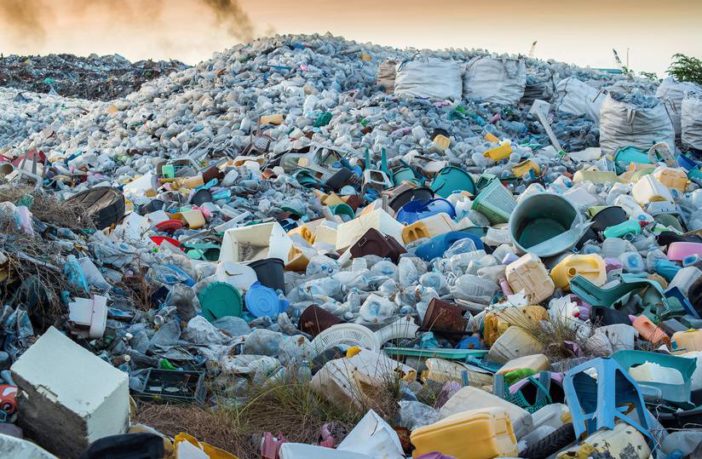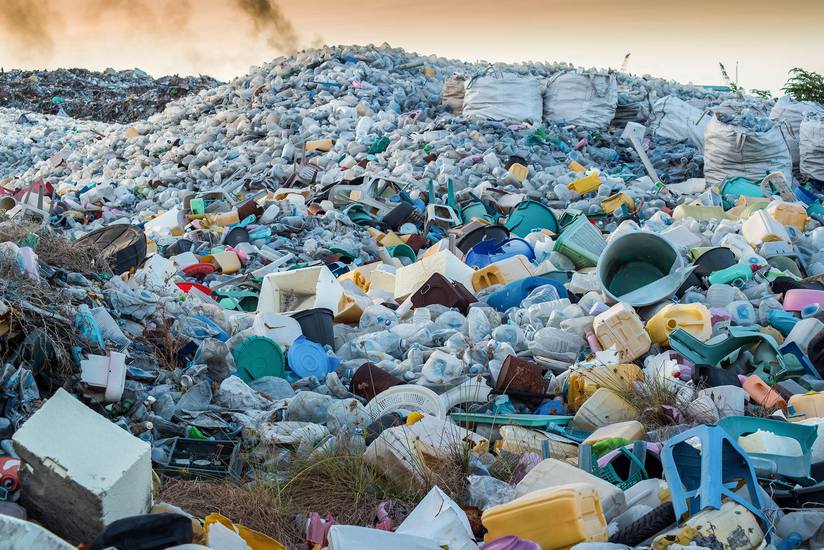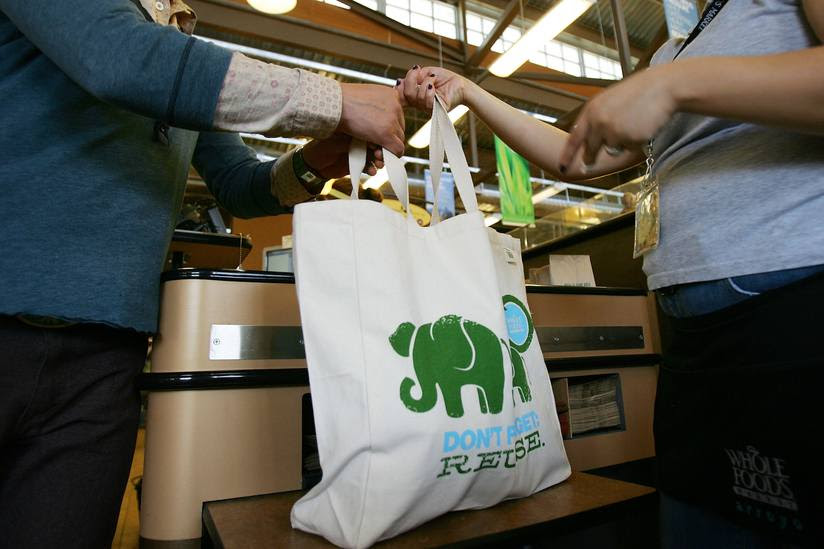Grapevine
Plastic bag use has dropped 80 percent as a result. Is this the model for the rest of the world?
On Jan. 1, 2017, Israel began requiring its supermarket chains to charge 3 cents for plastic bags. Since then, plastic bag use has dropped 80 percent, according to the country’s Environmental Protection Ministry.
If that’s not enough of a reason to cheer, consider this: That 80 percent reduction is equal to almost 8,000 tons of plastic. Know what else weighs 8,000 tons? About 400 buses.
Plastic waste is a huge worldwide problem because it can only be recycled once. (Photo: Mohamed Abdulraheem / Shutterstock)
The country’s shift is part of a larger trend worldwide to curb widespread use of plastic, which is overwhelming landfills and harming marine life in record numbers. In August 2014, California became the first U.S. state to enact legislation imposing a statewide ban on single-use plastic bags at large retail stores. The bill, which passed as a referendum in the November 2016 election, also required a 10-cent minimum charge for recycled paper bags, reusable plastic bags and compostable bags at certain locations. Several other states followed suit. New York, for one, is in the process of introducing a statewide ban on plastic bags with the goal of completely outlawing them by 2019. Major metropolitan cities like Boston, Seattle and Chicago have also enacted bans.
“We are seeing a substantial decline in plastic grocery bags litter on beaches, rivers and parkways,” John Laird, California’s Secretary for Natural Resources, told The San Jose Mercury News.
Employees hand out free reusable grocery bags at a Whole Foods Market in Pasadena, Calif. (Photo: David McNew/Getty Images)
By enacting fees for plastic bag use, customers were discouraged from using them, officials said. Though the cost is small, it helped them remember to bring reusable bags and therefore reduce plastic waste.
At least one other country has gone even farther, banning plastic bags altogether and replacing them with recycled paper fiber bags.
Morocco has completely banned plastic bags. You can’t even pay for one. What they have instead is recycled paper fibre bags that feel like soft fabric and are biodegradable. Here is my afternoon purchase in its bag. Way to go Morocco.
— maxine mawhinney (@maxinemawhinney) 5:46 PM – Mar 26, 2018 · Marrakesh Medina, Morocco
So, all told, does this sweeping change actually work to reduce the global plastic crisis? Judging by the momentous success several states and countries have reported, we’re giving this one a resounding “yes.”









